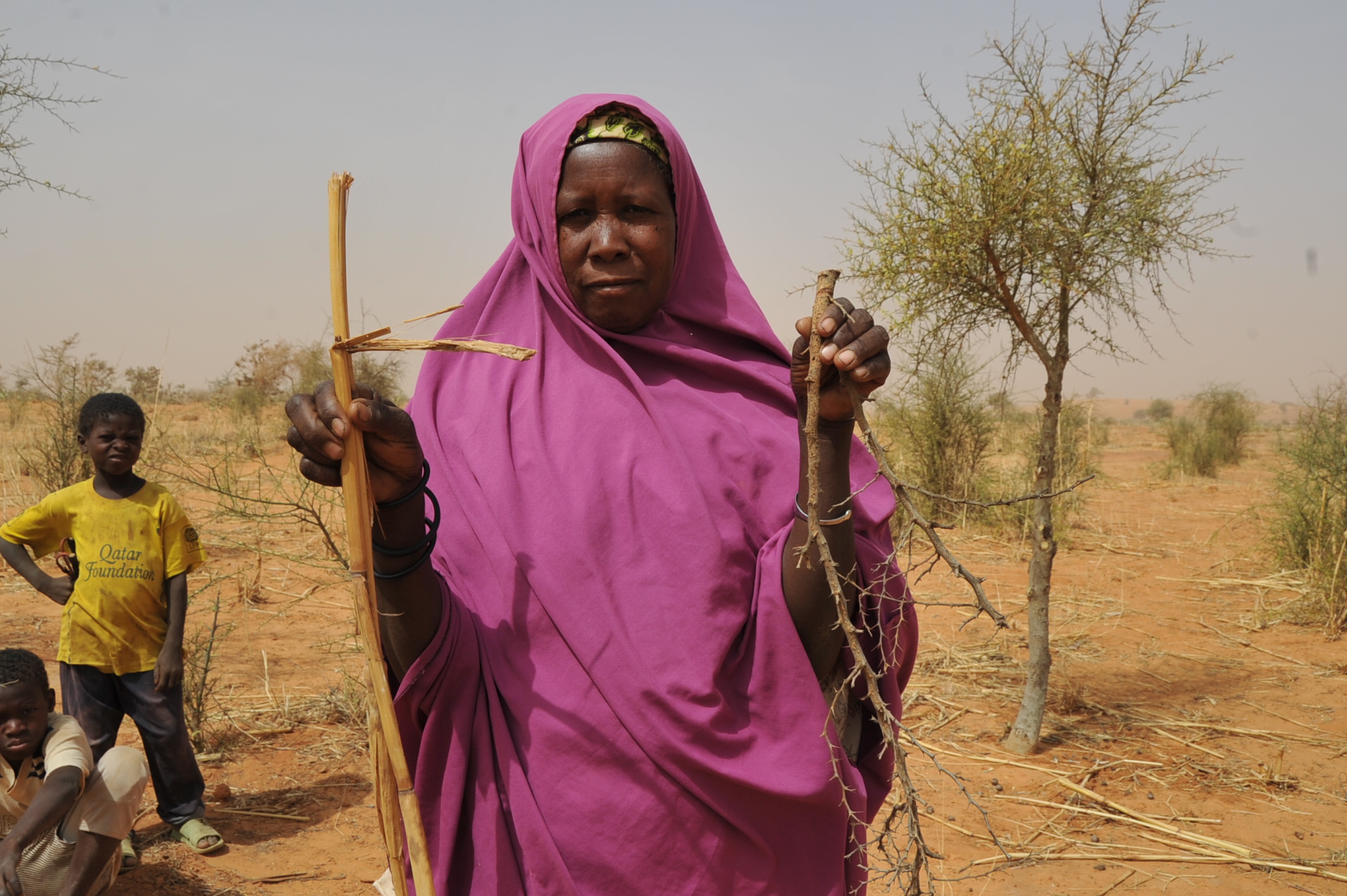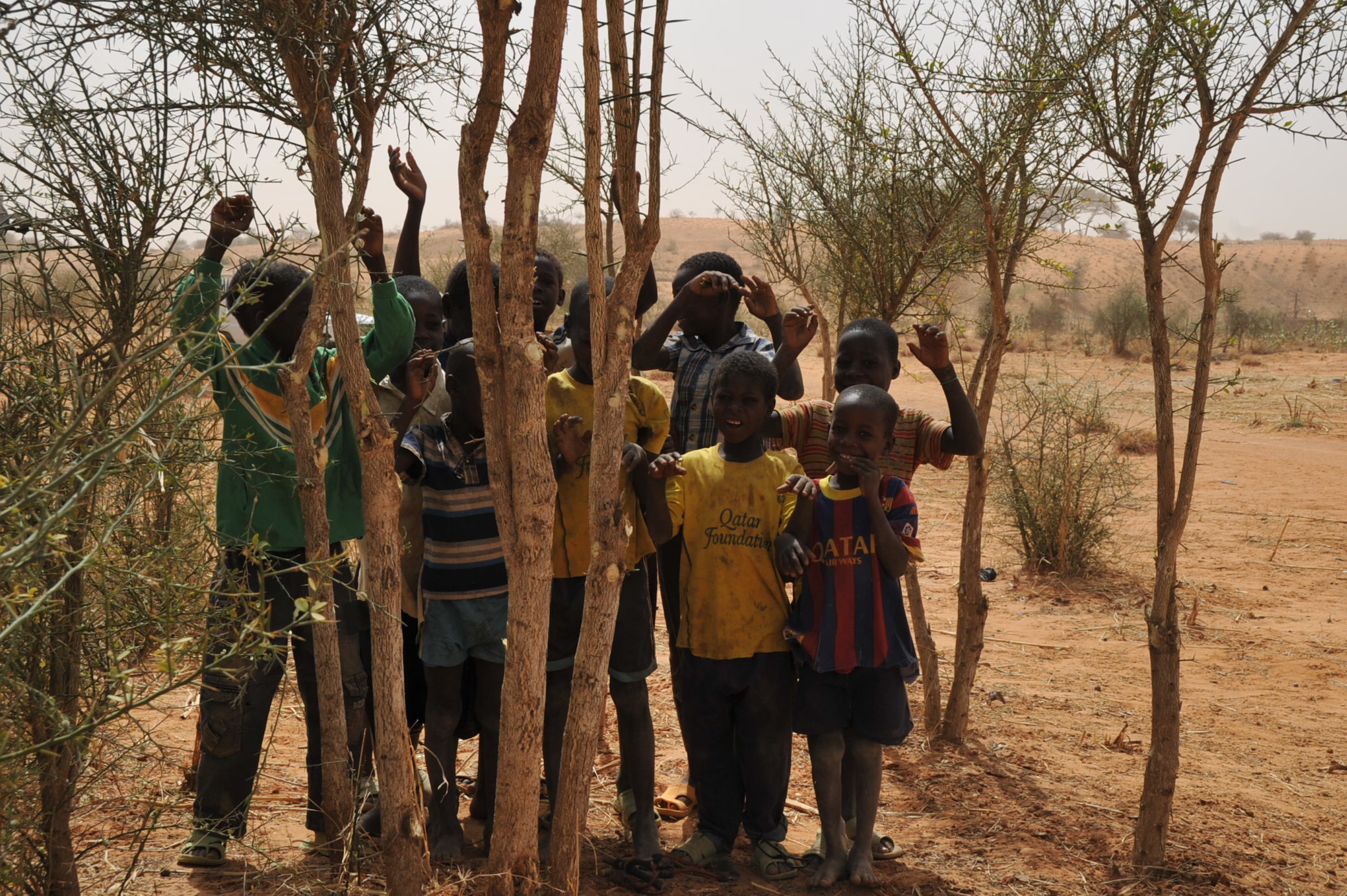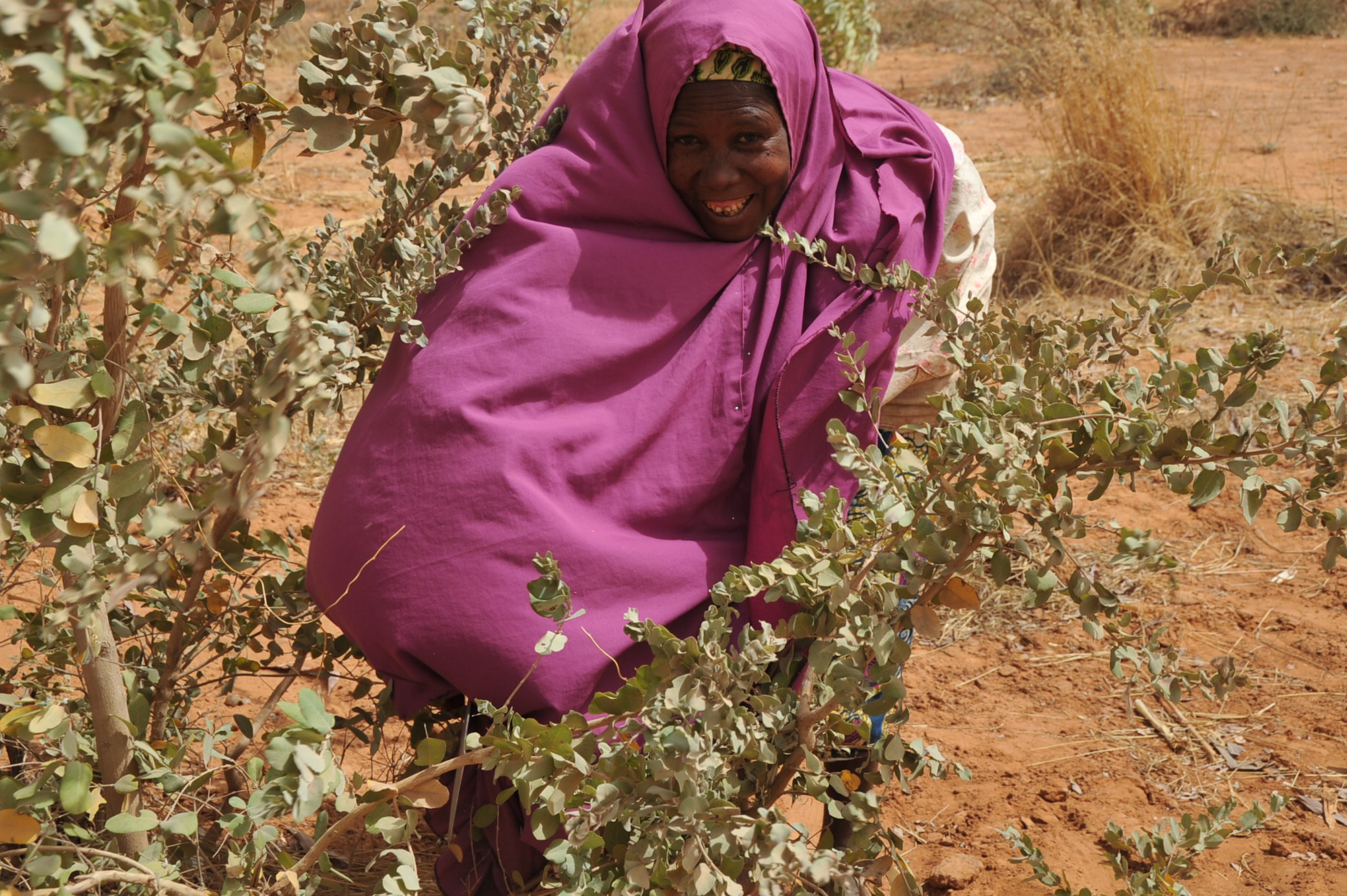
What does FMNR mean to Niger Communities?
June 3, 2016
By Mariana Chokaa, World Vision Niger
Read the testimonies of two individuals practicing FMNR in Niger

Aboubacar practices Farmer Managed Natural Regeneration (FMNR) in his village
“I did not know that pruning a tree could help me grow plants tall like this,” says Aboubakar Namaou, a 47-year-old father of 13 children. Since 2012, Aboubacar Namaou has been learning about FMNR through a World Vision Food Security Advisor. Like many other farm owners in Tahoua, Aboubacar has learned about pruning in the past two years and it has revolutionised his experience as a land owner and a farmer in a country where desertification is slowly swallowing up the scarce pieces of land that were previously cultivatable. “Even though I can cut trees on my farm, I have to do it with government permission,” he says. The trees growing on his farm are locally referred to as adoua [Balanites aegyptiaca]. It is a tree that grows naturally in the area and is known as a hardy plant that can stand up to the toughest conditions. On Aboubacar’s farm, which measures about one hectare, the tree is the adoua is most prevalent with the acacia following closely behind. “Whenever I come out to prune, I focus on the smaller plants because I have learned that this helps them to grow big,” he says as he trims the smaller bushes. “I prune trees so that they can grow tall and when they do, I get government permission to sell them or I use them in my own house for firewood,” he explains. “I can tell you that this area is greener now because of these trees, it was so bare before. There was nothing growing here,” he finishes.

Assamou practices Farmer Managed Natural Regeneration (FMNR) in her village
“Let me show you how I take care of this tree,” says Assamou Nomo, a 55 year old mother of nine children. “I look at the plant and I look for the branches that are straight and pointing upwards, those types of branches, I don’t touch them. I leave them, because they are going to grow taller,” she says with an air of wisdom. “All of the ones that are growing sideways, I cut them and those bending towards the ground, I trim them off. I let the leaves fall on the ground because they will make the soil healthier,” she finishes. For a mother like Assamou Nomo, a constant supply of firewood to cook for her children is crucial. She cannot do without it. World Vision Niger together with the government is working on making Farmer Managed Natural Regeneration (FMNR) part of the norm by letting community members know that it is not cutting down a tree that is the problem, it is not growing any to replace them that is the problem. Assamou has benefitted from training she received from the World Vision team on FMNR. She now knows that she can not only grow trees but that she can take care of them. She can take care of trees and be responsible in how she uses them. Assamou has a farm of about half an acre that has healthy dan tahoua trees [acacia colei] thriving on it. “When I cut off the branches that are bending down and facing sideways, I collect them all and I take them home where I keep them to dry so I can use them as firewood,” she says. “Who taught me this?” she asks with an air of amusement… “World Vision!” she says in a tone that is heavy with gratitude. “I can show you what we used before for firewood,” she says as she bends to pick up dry millet stalks. “These things do not last and when there is heavy wind, they can even carry the fire and burn something else in their way. For a handful of stalks, I can use one or two branches of adoua [Balanites aegyptiaca] or dan tahoua [Acacia colei] and they are much better to cook with,” she says.
